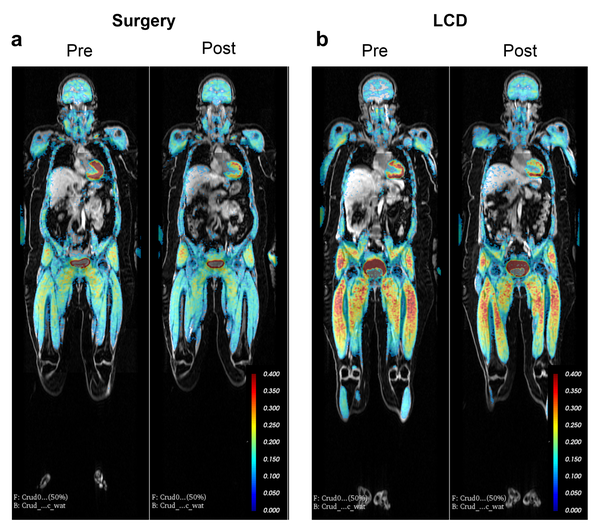Metabolic and neuroendocrine effects of bariatric surgery
Bariatric surgery provides the best outcome in terms of long-term weight loss and induces favourable metabolic adaptations that are not only depend on weight loss. We explore the neuroendocrine effect of bariatric surgery to understand how to mimic them in a less invasive way in the future.
Project description
To explore the mechanisms for diabetes remission after gastric bypass, we compared patients with obesity and type 2 diabetes that underwent surgery to matched controls in standard-of-care medical treatment. We assessed the changes in neuroendocrine response to fasting and different nutrient challenges and we explored the role of the adipose tissue in mediating the beneficial effects of bariatric surgery through its changes in metabolism, morphology and adipokine secretion pattern. So far, we have observed that in the early post-operative period, neuroendocrine regulation seems to play a more relevant role than adipose tissue in improving insulin sensitivity and leading to diabetes remission.
One of the more troublesome complications of gastric bypass is postprandial hypoglycemia. We have highlighted that GLP-1 seems to improve hypoglycemia awareness without affecting the counterregulatory response. Now, we are trying to map the counterregulatory response in post-bariatric individuals after a high-carbohydrate meal.
We have also highlighted several brain effects of bariatric surgery in terms of functional connectivity, blood flow and glucose uptake.
We are now comparing the short-term effects on whole-body glucose metabolism of bariatric surgery and low-calorie diet.

Chosen publications
Almby KE, Katsogiannos P, Pereira MJ, Karlsson FA, Sundbom M, Wiklund U, Kamble PG, & Eriksson JW. Time Course of Metabolic, Neuroendocrine, and Adipose Effects During 2 Years of Follow-up After Gastric Bypass in Patients With Type 2 Diabetes. The Journal of Clinical Endocrinology & Metabolism 2021 106 e4049–e4061.
Katsogiannos P, Kamble PG, Boersma GJ, Karlsson FA, Lundkvist P, Sundbom M, Pereira MJ, & Eriksson JW. Early Changes in Adipose Tissue Morphology, Gene Expression, and Metabolism After RYGB in Patients With Obesity and T2D. The Journal of Clinical Endocrinology & Metabolism 2019 104 2601–2613.
Almby KE, Abrahamsson N, Lundqvist MH, Hammar U, Thombare K, Panagiotou A, Karlsson FA, Sundbom M, Wiklund U, & Eriksson JW. Effects of GLP-1 on counter-regulatory responses during hypoglycemia after GBP surgery. European Journal of Endocrinology 2019 181 161–171.
